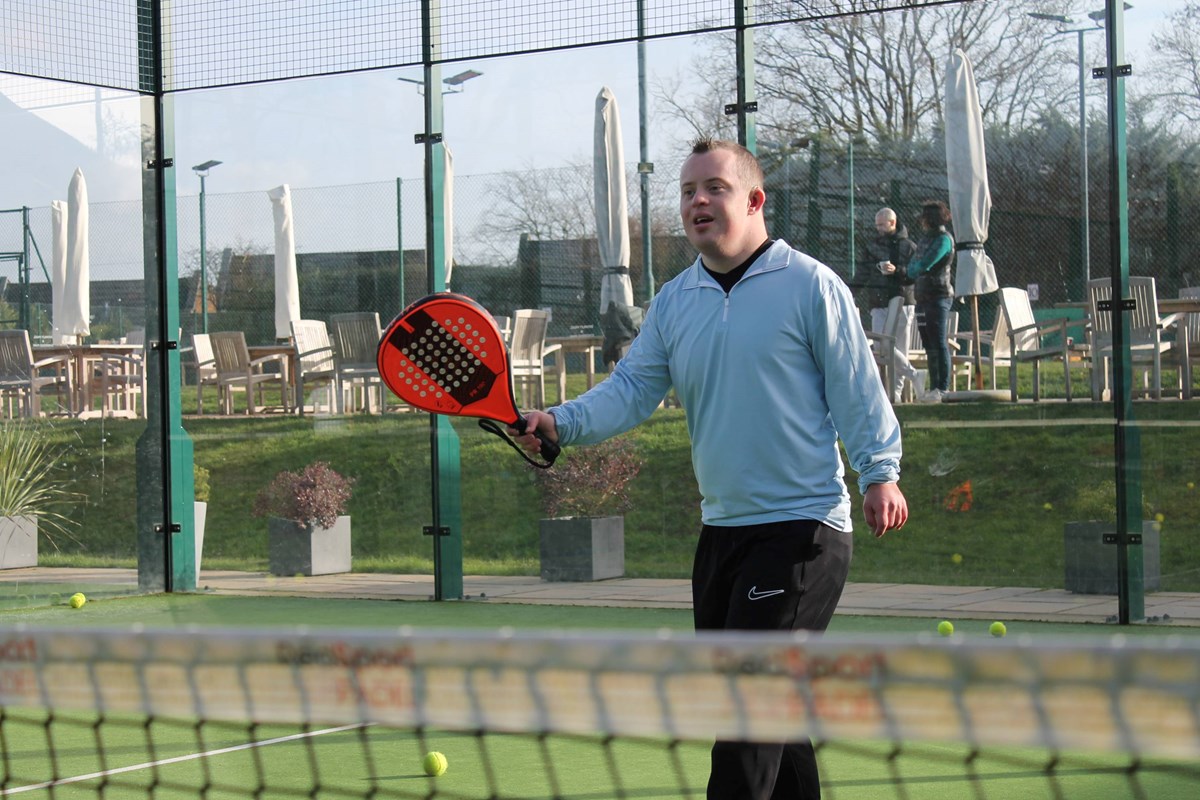Disability padel

Padel is an inclusive sport for everyone.
Its smaller court size, easy-to-understand rules and doubles format make it a highly accessible sport that offers several physical and social benefits.
Whether you’re a wheelchair user, have learning disabilities, or a long-term health condition like Parkinsons or Dementia, there is a space for you to play and thrive on the padel court.
What makes padel so accessible?
It’s flexible and adaptable
Padel can easily be adapted to suit the needs of players with various impairments. The rules can be adjusted to make sure everyone can take part and enjoy playing the sport - for example, in wheelchair padel, the ball is allowed to bounce twice before you hit the ball.
It’s a social sport
Padel is typically played in doubles, providing an excellent opportunity for players to work on their teamwork skills and social connections. For those living with long-term health conditions, it offers you a chance to meet with other like-minded individuals.
Physical and mental health benefits
As well as being a great way to improve coordination, cardiovascular health and overall fitness, padel is also known for boosting mental health and wellbeing.
How to get involved in disability padel?
Our Open Court Programme, in partnership and jointly funded by Sport England, is a national scheme that actively promotes and delivers opportunities for disabled people to get involved in padel.
We partner with a number of padel venues across Great Britain to offer a variety of activities and sessions to boost mental and physical wellbeing and create more chances to play, connect and compete with other like-minded players.
There are already programmes designed to engage wheelchair users and players with a learning disability, as well as those with long-term health conditions such as Parkinson’s or Dementia.
If you’re looking for more information about our Open Court Programme, or want to find your nearest venue(s) that hold inclusive and adaptive padel sessions, head to the link below:
Find out more about our Open Court Programme:
